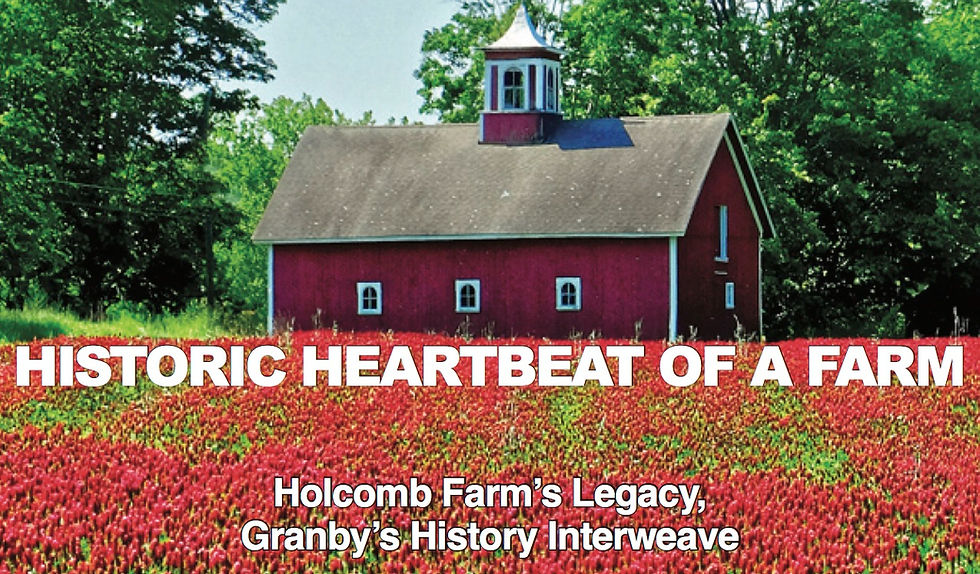Collinsville Pollen Trail is labor of love
- Today Magazine Online
- Nov 8, 2021
- 3 min read
Updated: Jul 31, 2025
This story first appeared in the April edition of our monthly Today Magazine — the article is timeless and relevant today
Special to Today Magazine and Today Online
After three years of work removing Japanese knotweed from beside the Farmington Canal Heritage Trail near Allen Place in Canton, a volunteer team has reduced the tenacious invasive enough to plant native trees, shrubs and flowers that will provide food and shelter for native pollinators.
Click This Ad for More Info
Called the Collinsville Pollen Trail, it’s the first of many planned public gardens in town that will serve as links to the national Pollinator Pathway.
Canton resident Karen Berger, a UConn-certified Advanced Master Gardener, oversees the Pollen Trail project. She has received the help of 700-plus volunteer hours from countless people — local residents, Boy Scouts, Master Gardener experts, and volunteers from the Cherry Brook Garden Club and Canton Land Conservation Trust (CLCT).
Berger is one of 22 directors on the CLCT board.
The project wouldn’t have been possible without the town Department of Public Works — DPW crews brought bags of invasives to the transfer station and regularly filled the donated rain barrels along the trail.
The Collinsville Pollen Trail began in October 2019, when Eversource personnel bought and planted 31 native shrubs as part of an agreement reached with the Canton DPW and residents. Cherry Brook Garden Club members and Allen Place residents planted dozens of perennial bulbs, mulched beds and broadcast thousands of milkweed seeds along the slope leading to the woods.
In the spring of 2020, Master Gardeners and Garden Club members donated numerous native plants — Avon resident Deb Pike gave dozens of natives raised from seed. Eversource staff planted 10 further trees and shrubs in June 2020.
These plants needed watering to survive a dry summer, and Rain Barrel Bob on Route 44 in New Hartford donated a barrel. Pollen Trail neighbors loaned or donated five more rain barrels and helped with the watering of 200-plus plants all spring, summer and fall.

Simsbury resident Michele Jenks, a Master Gardener intern, watered the garden nearly every Monday, Wednesday and Friday with her pickup loaded with a rain barrel repeatedly refilled at Canton’s DPW.
In September, volunteers added plants given by Monrovia Nursery Company.
Once the knotweed along the Pollen Trail had been mostly eliminated, Berger got a permit from the town’s Inland Wetlands & Watercourses Agency to remove the knotweed from the wetlands area between the trail and stream. The knotweed stalks were dried and shredded in September with the help of John Pech, a CLCT director, and a CLCT chipper.
No longer crowded out by invasive plants, the native shrubs and trees and flowers now have a better chance to thrive.
In the fall of 2020, volunteers planted an annual rye grass. This spring, plans call for adding natives and removing leftover knotweed sprouts. The goal is to eradicate the knotweed. Though the foe weakens, the battle continues.
The Collinsville Pollen Trail is the first of what Berger hopes will be many Pollinator Pathway gardens in Canton. Other public lands are being considered, working with the DPW. +
This article was first published in the April 2021 edition of Today Magazine, our monthly publication
Related News
• Today Magazine – What on Earth Is a Pollinator?
• Landing Place – Land Trusts Preserve Valley’s Rural Beauty
• Granby Land Trust – Preserving Open Space for 50 Years
Featuring community news that matters nationwide, Today Online and Today Magazine aim to record Connecticut’s underreported upside — covering the heart of the Farmington Valley and beyond
Today Online and Today Magazine are produced by Today Publishing
• 5 Farmington Valley Towns • 1 Aim — Exceptional Community Journalism
• Avon • Canton • Farmington • Granby • Simsbury









Comments